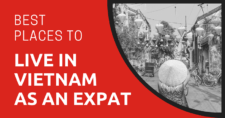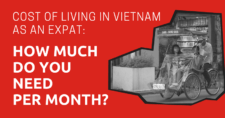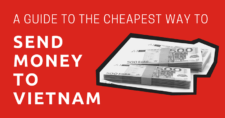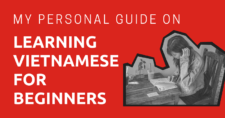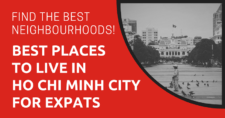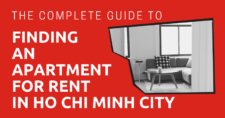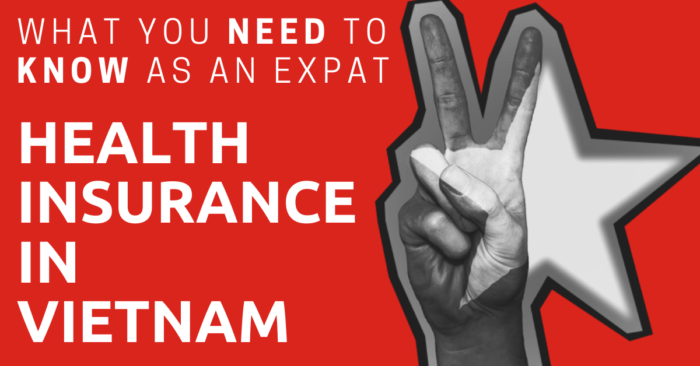
When I first left to work in Vietnam I was not working in the insurance business. I worked as an expat for over 20 years living in many diverse countries around the world. I always took the cheapest medical insurance on offer and moved from year to year.
Consequently I am now in my 50s and living with several existing, un-insurable conditions due to my constant switching and reluctance to choose a suitable insurance provider and sticking with them.
This was a poor decision as I now know. I took out an individual or claims risk international medical policy, yet was not informed by the insurance company that my existing condition of Diabetes Type 2 would be excluded as would any related condition.
Luckily, I ended up working as an insurance professional and immediately cancelled this poor policy and went with an established international medical insurance provider who offered community risk insurance.
By this stage I knew that this policy would cover me in all the countries I was spending time in, and it would provide me with excellent coverage of over USD$1-million-dollars on hospitalization and allow me to self insure my outpatient treatment, while covering my Diabetes Type 2 in terms of hospitalization, related conditions, and medical emergencies.
This guide will help you understand insurance in Vietnam, show you what to look for in a policy, and guide you through making the right decision for your needs.
This article will take approximately 27 minutes to read. Don't have the time right now? No worries. You can email the ad-free version of the article to yourself and read it later!
Disclaimer: This article may include links to products or services offered by ExpatDen’s partners, which give us commissions when you click on them. Although this may influence how they appear in the text, we only recommend solutions that we would use in your situation. Read more in our Advertising Disclosure.
Contents
Key Takeaways
- While it’s not publicly mentioned, always choose an insurance plan with a community risk policy.
- Vietnam public health insurance is mainly for Vietnamese citizens.
- International insurance is the most popular option for expats in Vietnam.
- If you plan to stay in Vietnam for many years, choosing an international plan from a joint venture company is a good idea.
- If you plan to relocate to other countries in the future, go with an international plan from international companies.
- If you are a retiree, choosing a plan with a high deductible can significantly decrease your premium.
- If you want to compare different plans at once, check our expat health insurance comparison page.
Individual Risk Vs Community Risk Policies
The very first thing you should know when buying health insurance in Vietnam is to understand the difference between individual risk and community risk.
Once understood, you can ensure that you either avoid a certain type of policy or you can consider both types with a full understanding of the pitfalls.
Surprisingly the majority of people interested in medical insurance are oblivious to this important difference.
In my case, I like to know which companies offer individual risk and avoid them.
Individual Risk Policy
The difference between community risk policies and individual risk policies is that community risk is when the insured person’s risk is shared among the total membership, rather than shouldered exclusively, which is then individual risk.
Consequently a claim on an individual risk policy will lead to a substantially increased policy premium when the policy is renewed, plus any increase due to medical inflation.
The other poor consequence of individual risk policies is that the holder will be trapped in these policies, as simply by moving to a new insurance company with a new policy to avoid these huge premium increases.
These clients will almost certainly end up with the medical condition responsible for that increased individual risk being excluded and the only alternative will be self insuring at a higher cost.
This is actually what happened to me when I first lived offshore.
Luckily, I ended up working as an insurance professional and immediately cancelled this poor policy and went with an established international medical insurance provider who offered community risk insurance.
Community Risk Policy
With a community policy, the increased risk is shared among the community, so the only increase in premium at renewal will be due to medical inflation.
While the starting cost of a community risk policy might be higher than that of an individual risk policy, it will be more cost-effective in the long run.
This is because, when you make a claim, your plan’s premium will not increase significantly since the risk is shared among the community. And you can continue having the same plan.
So, when you choose your health insurance plan, this should be your first question to ask.
Luma Health and Cigna Global offer community risk policies.
Health Insurance in Vietnam Options
You’ll have quite the selection in Vietnam when it comes to picking health insurance.
Here is an overview of where to start when looking for the best insurance in Vietnam.
International Insurance
There are now a whole host of international insurance companies operating in Vietnam. This will include a few operating only Individual risk policies.
International insurance is the most popular option for expats in Vietnam because of coverage and price.
There are three types of international companies operating here:
- Joint venture companies
- International companies
- Individual risk companies
Joint venture companies are good for expats planning to live in Vietnam for many years. Coverage is good, but you will be mainly limited to getting treatment inside Vietnam only.
International companies are for expats planning to stay in Vietnam for a few years and then relocate to other countries. They are more expensive than joint venture companies but come with better coverage as well. And you can get treatment worldwide
Joint Venture Companies
The first type is joint venture companies. These are international insurance companies who have partnered up with a local company to piggyback on their network.
They also benefit from joint venture business advantages, service their clients with domestic offices, and offer tax rebates to tax paying companies.
And therein lies the benefits, especially the 10% tax rebate deducted from your premium.
Generally these companies have a better direct billing network and better customer service from well-trained staff located centrally in an office in one or more of the major cities.
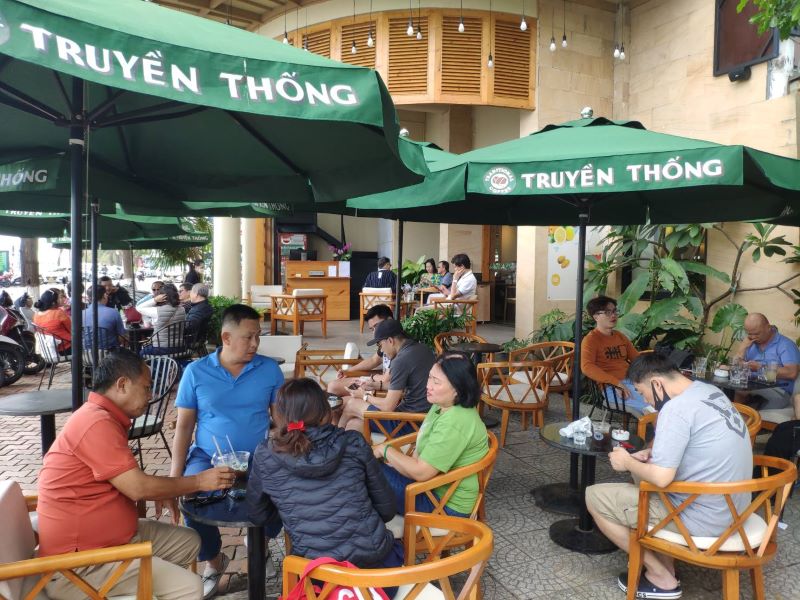
Luma is a good example of health insurance in this group. They partner up with a local insurance provider, Bao Long. By using their insurance, you get benefits from both offshore and local insurance.
You have access to their local staff and can visit hundreds of hospitals in their network without having to pay in advance. You also get health coverage for many countries in SEA with $1,000,000 USD coverage.
Other examples include Aetna (Bao Viet) and April International (PTI)
International Companies
The second are international companies with offices based outside Vietnam.
It’s more expensive than local insurance but comes with better coverage.
The coverage limit will be higher. And you get health coverage in other countries other than Vietnam.
Most international insurance plans also cover cancer, ICU, and COVID-19 in full.
If you prefer international insurance, you can check out Cigna. Based on our research and understanding, their plan offers the best value for the money for the coverage you would get.
If you are a US citizen and want to get medical coverage in the US as well, then Geoblue is a good option.
Other examples of offshore companies include:
Individual Risk Companies
The third group are the individual risk companies, the most well known are:
- Pacific Cross (based in Vietnam)
- Regency for Expats (based off shore)
Local Insurance
Local insurance is designed for locals and can help expats who have no intention of traveling outside Vietnam and don’t mind utilizing the local hospital system and for people who are prepared to take a chance with low levels of coverage.
Rarely do they include any country outside Vietnam in their coverage, and they will not offer emergency international medical evacuation and some will increase premiums at any time to increase their poor cash flow.
There are at least two dozen local insurance companies operating in the domestic market. They range from the good to downright dangerous.
Some of these companies enter the market with good intentions yet no experience, offer very low premiums, and then find they cannot cover the claims they receive.
There are several examples of this and their clients usually end up suffering.
But Bao Long and PTI offer a comprehensive range of medical insurance services and they are two of the best of these local Insurance companies.
For people who understand these shortcomings and are prepared to take the risk, these two, I believe, are the best. I also hear good reports about Athena local policies.
Social Security
There is a social security program here in Vietnam offering both locals and expats limited access to healthcare, pensions, sickness, maternity ,and industrial accident payments.
It is available to expats who are working legally in a Vietnamese company with a work permit. It’s paid for by contributions made by both the employer and the employee.
Since current immigration rules on Social Security change regularly, it should not replace any existing expat pension or insurance that you may have.
In fact, many expats choose to avoid Social Security and rely solely on their own private insurance, since they do not want to go to a public hospital in Vietnam.
Group Insurance
If you are working in a Vietnamese company, you might get group insurance.
Many of these domestic and international insurance companies offer corporate or group policies. These can start at three people, but at 10+ these policies can become extremely attractive.
No group or corporate policy is the same so again, a lot of research is required.
All these group or corporate policies need to be paid from one account, and some providers insist on employment contracts, some don’t, and many can offer an attractive discount of up to 25%.
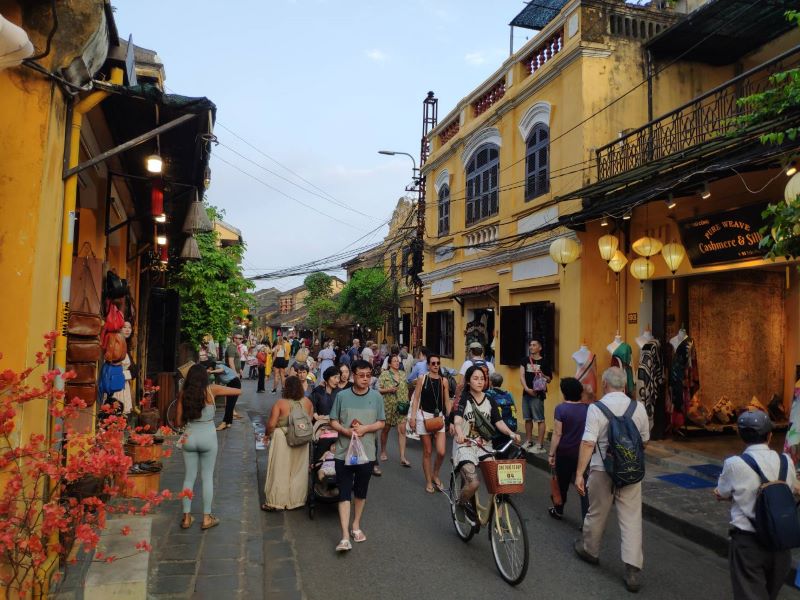
Another huge benefit is that a few providers will offer a “medical history disregard” where all previous medical conditions are covered, providing they are not being currently treated.
However, be sure to confirm with each insurance company that you will get offered the chance to insure that or any existing medical condition with their company when you leave the group.
This is important as not all insurance companies offer this and you will need to avoid getting stuck as an individual expat with an existing condition which will then be excluded from any new individual policy.
In my view, the best way to find out about these group or corporate policies is either to contact the companies directly, or go through a local broker.
Have all your questions ready, plus the names and dates of birth of the potential members.
Travel Insurance
Travel insurance is for travelers who intend to return to their country of residence after a short period of time, most often 6 months.
In most of these policys’ terms and conditions it will state that the policy will be cancelled if you are no longer a resident of the country where you engaged the insurance policy.
Travel insurance will also return you to your country of residence for emergency medical treatment or serious medical issues.
Once home the policy will be cancelled, thus leaving anyone intending to return offshore after treatment with an existing condition that most likely will need to be self insured.
For short trips for healthy people, these policies are a great value. Anyone working or remaining offshore for a longer period of time and expecting to use a travel insurance policy to “save money” could be in for a life altering shock.
This is another reason why you need to find out when your residence in the country where you purchased this policy will expire, for when it does, usually your travel insurance will cease too.
Medical Insurance for Your Lifestyle
You can’t get any old insurance policy when moving to Vietnam. You have to get one tailored to your lifestyle.
Here are a few common scenarios followed by a few real-world case studies.
Expats Working in Vietnam
As an Expat working in Vietnam your insurance policy can be assigned to you by your company or you can be given the money by your company to choose a policy, or finally, this task will be left completely up to you.
Domestic Medical Insurance Policies
Most expats have this type of policy waiting for them, so it’s important to look at the policy table of benefits.
These policies are usually not transferable to another country. See if the policy will cover your dependents, but understand the pitfalls.
These policies do not cover international medical evacuation, so if your dependent–and they are also covered–has a brain tumor, you will have to self-fund the evacuation and the operation.
These policies usually will not cover you outside of Vietnam. These policies have a low level of total coverage, the best are usually USD$40,000 but I have seen USD$10,000.
As for real-life examples, I know a 61-year-old teacher who moved from Canada to Vietnam, but she wants to keep relocating open–possibly to Thailand.
This teacher works for a school who provides Vietnamese medical insurance to all its staff through a local insurance company.
This particular teacher was worried about having local medical insurance which included just USD$10,000 total annual coverage, no medical evacuation, and no international coverage.
These policies are designed to help the local population in local hospitals. They are usually sold to corporate clients in a package with little regard for the people who will use them or what they actually need.
Foreign Medical Insurance Corporate Policies
Few expats get signed up to these policies by their employers, however, if you do, you still need to make sure the policy is suitable.
Contact the insurance company and inquire whether you can continue with that insurance company and the policy should you leave this employer–this is called continuity insurance.
Make sure it’s not individual risk, otherwise the premiums could be horrendous if you have made lots of claims when you leave the company and come to pay the premiums yourself.
Make sure it is transferable to other countries, for example Liberty’s policy is only transferable to four or five neighboring countries.
Freelancers, Nomads, and Entrepreneurs in Vietnam
All the policies recommended for individuals in this guide apply to this group.
The only advice is to acquire a policy that can move internationally with you and to where you want to move.
All the big international companies offer this option, the domestic insurance companies do not, and Liberty does not–despite what they tell you. Look at the small print.
One point worth remembering is that if you think you might want to live elsewhere after Vietnam, make sure the policy you have or you are considering will cover you for that option.
If you don’t check and wish to change countries at a later stage, you may have to apply again.
This can mean that if you have had Dengue Fever while working in Vietnam then it is unlikely to be covered for a move to other countries and it will become an exclusion.
This issue can be avoided if you check during purchase or as soon as you know you will move to another country.
For example, if you plan to move to Thailand after Vietnam, you should choose a plan that covers both Vietnam and Thailand.
You can check our health insurance comparison if you are in this group. We have different expat health insurance plans available and can help you pick up the right one.
Expats Retiring in Vietnam
Most retired expats are looking for a deal and the best option by a long way is to search for a reputable international company with a local partner and take hospitalization only with a 30% to 50% deduction.
This means you will have to pay the first USD$2,000 to USD$10,000 dollars of a claim but then the insurance company pays everything else.
Perfect for retirees when the premiums are very high as in exchange for this you will get a USD$1,000 to USD$4,000 reduction on the premium each year and you will be covered for all those life threatening emergencies.
It is also worth noting that 90% of community-rated insurance companies will not insure new clients if you are over 65 years of age.
Morgan Price (UK) and Aetna (USA) still offer those applicants under 75 years of age, but after that it is only individual risk, sometimes to 85 years.
Another option is Cigna Global.
Finding the Best Insurance Plan for Expats
Finding the best plan for you is going to take some legwork. Although by following the suggestions in this section, it should make your search easier.

Please note that when it comes to health insurance, there’s no best plan in the market. There’s only the right plan for you.
Decide Before You Come to Vietnam
Firstly, how long do you intend to remain in Vietnam? Less than six months or more than six months?
Secondly, once you have completed your stay in Vietnam, will you remain offshore or return to your home country?
And thirdly, I suggest you contact the authorities in your home country to ask how the answers to the first two questions impact on your residency status in your home country.
These answers will determine the basics of what type of international medical insurance or travel insurance you will require and also where that policy should cover. It will also save you plenty of time in the future.
Type of Coverage
Next, I would suggest you should write down what is important and necessary for you bearing in mind what I have written above.
The answers should include where you will be needing insurance and whether you want international standard hospitalization or the local public alternative.
Do you really need outpatient care and medication? Many people find out that self insurance (paying oneself) on outpatient services saves money in countries like Vietnam.
What about medical evacuation, dentist, vision, pregnancy ( which usually requires 12 months waiting) extras?
List your previous medical history and existing conditions and medications.
Regions and Countries
Decide on the countries you need to be covered in and always look for your own to be covered if spending a long time off shore. There may be no extra charge for that. Also look for countries you will be, or may be, moving too in the future to be covered.
Do understand that including the USA in this option will increase your premium enormously.
Coverage Limits
You should decide on the minimum annual limit.
It is the total insurance payout or coverage over the course of the annual premium. The following year you will start again with your total annual coverage if you renew the policy.
I usually suggest USD$500,000 for a worldwide policy. For a domestic insurance only policy USD$100,000 is fine.
Local insurance will commonly be under USD$50,000. This is not recommended since it is possibile to reach this figure if you go to a private international hospital. Then, you will be required to pay.
To give you a perspective, emergency medical evacuation is from USD$70,000 to USD$150,000 depending on where you go. Annual cancer treatment can start from as little as USD$45,000 per year at top rate hospitals.
A broken spine and six weeks in an international hospital here in Vietnam will be about USD$10,000.
Outpatient Treatment
Having outpatient coverage is recommended in Vietnam.
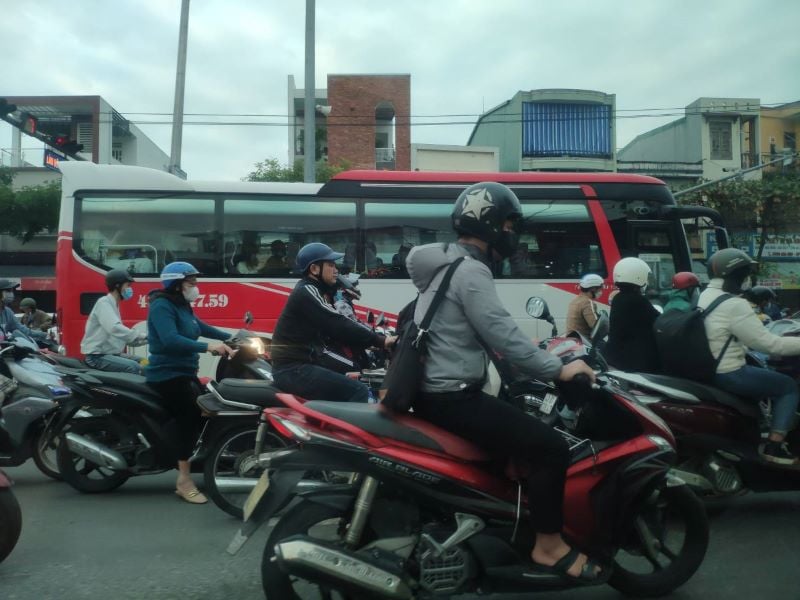
As the preferred method of transport in Vietnam is by scooter or motorcycle, the injury and death rates on the roads here are very high. Having a medical insurance policy that covers not only hospitalization but also some outpatient care is a good idea.
Age
It is a fact of life that the risk of a 25-year-old requiring major medical treatment is much lower than that risk associated with a 65-year-old.
So, your insurance premium will be higher as you get older. Also, it can be challenging to find a policy in Vietnam that accepts new applicants over 60 years old.
One of the available plans is Cigna Global. They offer a Close Care plan, which is mainly for retirees spending their retirement life abroad.
Payments
Think about how you will pay: monthly, quarterly, biannually, or annually. By bank transfer or credit card?
Most of these decisions can incur surcharges of up to 10%, and these charges vary from company to company.
Usually paying yearly and by credit card is the cheapest and easiest.
How Much is Health Insurance in Vietnam?
The cost of health insurance in Vietnam varies per person.
The older you are, the more expensive the insurance premium is going to be.
If you are prone to sickness or have a chronic disease, your health insurance plan will be more expensive than others who don’t have any illness.
A comprehensive plan is going to cost you much more than a basic health plan.
A plan with international coverage is going to be more expensive than a plan that covers only your medical bill in Vietnam.
You can, however, decrease your insurance premiums with a deductible and copay.
In general, you should expect to pay $80-$120 per month for a good offshore insurance plan, although the price will be much higher for a comprehensive plan.
There are local insurance products that are cheaper, but those come with reduced coverage.
How to Get Health Insurance
Now you will have three options. Find an insurance broker, use a comparison website, or contact a medical insurance company directly.
Using Brokers
Brokers can be good and can be bad, but a personal recommendation from a local resident should help you find a good one.
A good one will always ask you questions about yourself and your family to find the right policy.
There are many types of insurance brokers working in- and outside of Vietnam. By choosing one in Vietnam you will get the benefit of their experience gained from all the clients they service.
International Insurance has a team of good licensed brokers that are able to help you pick up the right plan based on your requirements.
Another good way of finding a broker is to get a recommendation. Expats in HCMC or Hanoi Massive are two good groups on Facebook.
Usually it’s worth contacting up to three people to see the way they work and view all their recommendations.
The best brokers will give you their opinion based on your situation and requirements. At the other end of the scale, the bad brokers will not be interested in you or your needs and offer you just one quotation.
Make sure you ask for the table of benefits for the recommended policies so you can check that there has been no misunderstanding over the type of policy you want.
The broker will only handle the sale and the renewal, and in a few cases they will act on your behalf should that be necessary, when dealing with these insurance companies.
Using Comparison Websites
Many people who buy medical insurance outside Vietnam before their arrival opt to use a comparison website.
Handily, these websites sometimes publish seasonal offers or discounts from some of the top providers in the business.
It’s a great way to see what discounts and offers are available as all retailers and all brokers should also have these offers at exactly the same rates.
However, as far as the other policies are concerned, be warned.
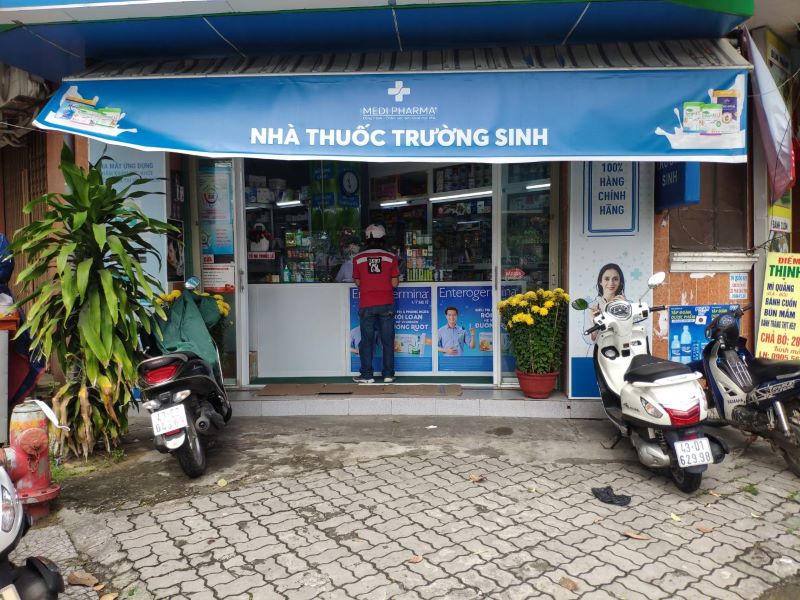
Most of these comparison websites are owned by one large insurance company and they were designed to promote their own products.
These insurance policies promoted by the website owners are individual risk and this is rarely explained properly and the company which owns the site is notoriously reluctant to supply the policy’s table of benefits to the potential clients until after payment.
Any initial offers on their own insurance policies are usually recouped the year after expiry at renewal time, with a hefty increase in premium.
So, we created our own health insurance comparison to help you choose the plan that’s most suitable for you. You can then get a quote directly from our partnered brokers as well.
Contacting Insurance Companies
Contacting the individual insurance companies yourself is hard work, involves plenty of time, and is tedious. Furthermore it would help if you have a great understanding of the subject.
Nevertheless if you don’t want to use a broker, this is really the only alternative.
You can contact them through the internet or you can find a corporate sales person on social media.
Once in contact with a sales person you will be given the sales pitch. Just ask for the table of benefits, which is usually 5 to 10 pages long.
I would not give a contact number as some are very persistent. Collect all the tables of benefits and study them based on your decisions of what is important to you.
Usually there is one per provider summarizing all company policies for an individual in a table.
This is to make comparisons between policies easier than searching through a 90-page terms and conditions document written by lawyers.
Once you have decided on the policies, get a few quotes and then give them your contact details.
There will be no monetary advantage in going directly to an insurance provider rather than using a broker.
Applying for Insurance
To apply you will need to complete an application and in some cases submit a copy of your passport. Each application is different, can ask complicated questions, and can be quite thorough.
All forms in Vietnam ask for details of your doctor, but this question is rarely answered as most people do not use the same doctor in the same way as they do in the West.
If you encounter problems answering any other questions it’s best to ask the insurance company directly or ask the broker.
The processing time is usually five working days but if you are in a rush let the company or broker know as the application can be expressed.
You can always specify the start date. This should be the date you write on the application, so the policy can be backdated after the application is processed and paid if that is what you want.
Once the underwriting is complete the company will make you an offer, and then, once accepted, issue you an invoice.
When paid, your policy will be started on the date you have stipulated. The insurance company will then forward you the documentation and a card.
It’s always worth photographing the card to keep on your phone so you always have this information with you at all times. Also it’s worth having an ambulance telephone number on hand from a hospital you favor.
Should I Lie About My Pre-Existing Condition?
I never recommend people to lie on their applications, although surprisingly, many applicants admit to wanting to mislead their new providers.
For a start, any medical hospital will know whether this injury or condition has been present for a while, and secondly at the start of each new policy all the insurance companies are acutely aware that undeclared existing conditions will appear at this time.
The consequence of any lies manifesting themselves will be the cancellation of the policy by the insurance policy with no reimbursement.
This will also become a matter of public record and will mean that the individual will not have access to medical insurance in the future from international insurance companies.
Insurance Guide in Other Countries
We also have our health insurance guide in other countries including:
- How to Pick the Best Travel Insurance for Canada
- Health Insurance for Expats in China: What You Need to Know
- Health Insurance in Germany: What You Need to Know as an Expat
- Health Insurance in Malaysia for Expats: What You Need to Know
- Health Insurance in Thailand: What You Need to Know as an Expat
Now, on to You
That sums up our post on insurance for expats in Vietnam. Hopefully you are now well on your way to understanding how insurance in Vietnam works and what to look for when buying it.
If you have any experience buying insurance in Vietnam, feel free to leave a comment below.


